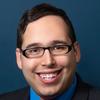Ethics: Model Rule 8.4(g) and Constitutional Limits on Regulating Attorney Expression of Unpopular Positions
Recording of a 90-minute CLE video webinar with Q&A
This CLE course will review the efforts by the ABA and many state bars to regulate against “harassment” and “discrimination” in an attorney’s speech or conduct, the debate over ABA Model Rule of Professional Responsibility 8.4(g), and when a state can legitimately regulate an attorney’s speech related to the practice of law. Many recent efforts at excising “harassment” and “discrimination” have been criticized for violating the First Amendment because they may prevent an attorney from speaking out on controversial and important topics and targeting speech outside of the ordinary course of a lawyer’s court-related duties, such as a conversation at a bar dinner or a presentation at a CLE event. Now, a federal district court in Pennsylvania has issued a preliminary injunction against one state’s attempt to regulate such speech and conduct. Greenberg v. Haggerty, Case No. 20-3822 (E.D. Penn. Dec. 8, 2020).
Outline
- Regulation of lawyer speech
- History of Rule 8.4(g)
- Constitutional concerns under Rule 8.4(g)
- Due process
- First Amendment free expression
- Freedom of association and religion
- Vagueness
- Understanding when speech or conduct is or is not "related to the practice of law"
- NIFLA and the regulation of occupational speech
- Commercial issues
- Political speech
Benefits
The panel will review these and other key issues:
- What is the difference between regulating conduct and speech in light of the Supreme Court's decision in NIFLA v. Becerra, 138 S. Ct. 2361 (2018)?
- What do key terms in Model Rule 8.4(g) mean?
- What are the First Amendment concerns that Model Rule 8.4(g) raises?
- How the rule might be revised to obtain its goals
Faculty

Ethan W. Blevins
Attorney
Pacific Legal Foundation
Mr. Blevins litigates cases involving the First Amendment, property rights, and the separation of powers.
| Read MoreMr. Blevins litigates cases involving the First Amendment, property rights, and the separation of powers.
Close
Donald Patrick Eckler
Partner
Pretzel & Stouffer
Mr. Eckler handles a wide variety of civil disputes in state and federal courts across Illinois and Indiana. His... | Read More
Mr. Eckler handles a wide variety of civil disputes in state and federal courts across Illinois and Indiana. His practice has evolved from primarily representing insurers in coverage disputes to managing complex litigation in which he represents a wide range of professionals, businesses and tort defendants. His coverage practice for insurers and the insured involves commercial general liability and personal lines policies, issues involving the duties to defend and indemnify, bad faith and the application of exclusions. His tort defense work involves representing nursing homes and long-term-care facilities, product manufacturers and distributors, trucking concerns and premises owners.
Close
Daniel M. Ortner
Attorney
Pacific Legal Foundation
Mr. Ortner joined Pacific Legal Foundation in the fall of 2018, focusing on the First Amendment, property rights,... | Read More
Mr. Ortner joined Pacific Legal Foundation in the fall of 2018, focusing on the First Amendment, property rights, economic liberty, and curtailing the overreach of the administrative state.
Close